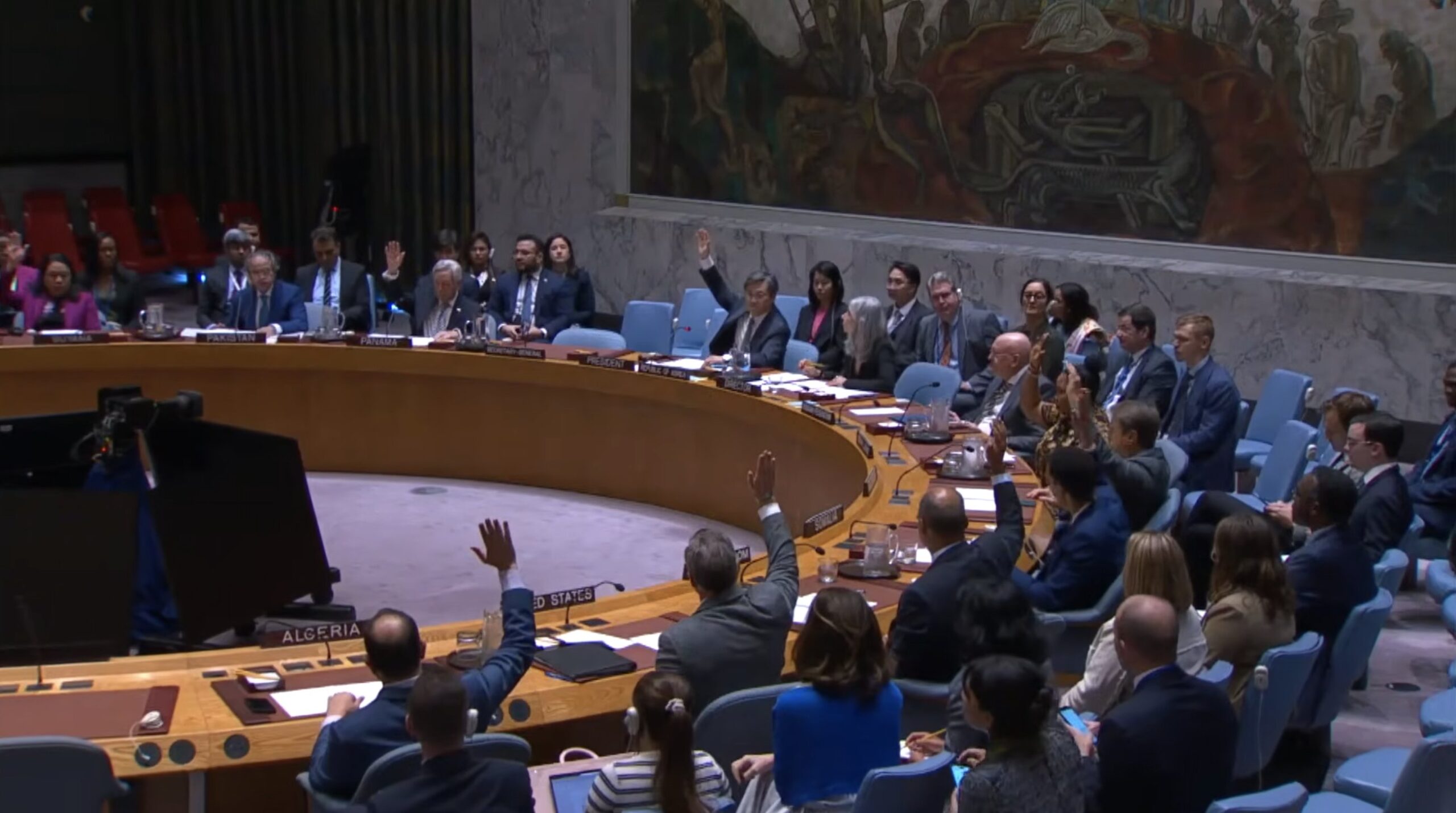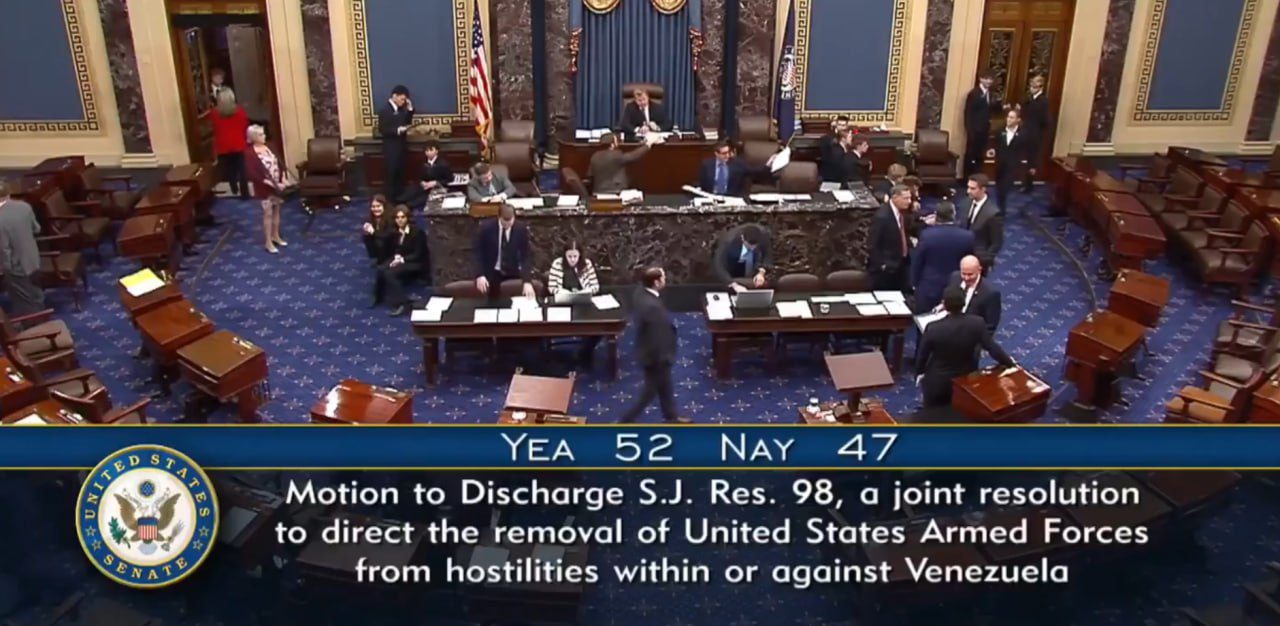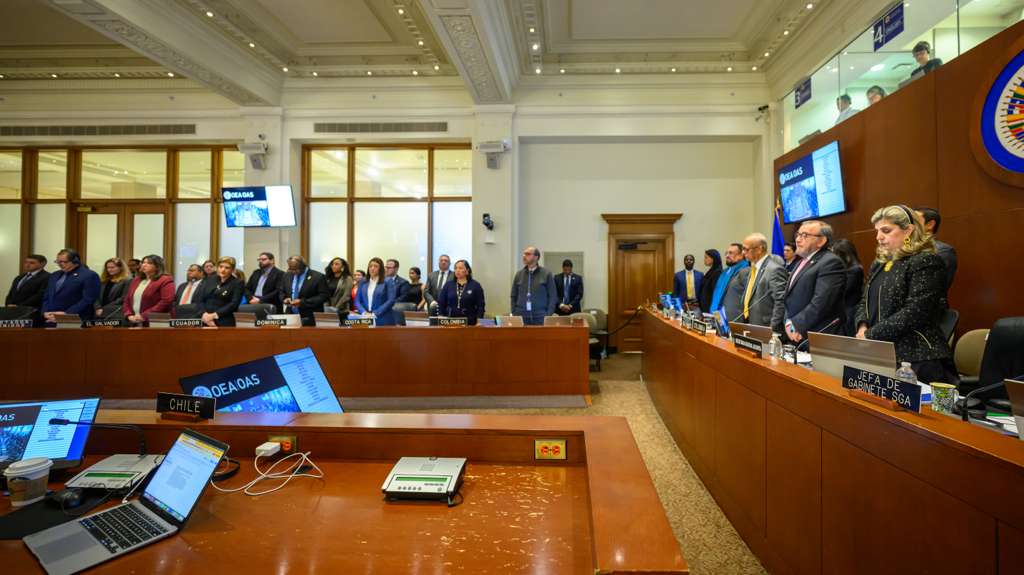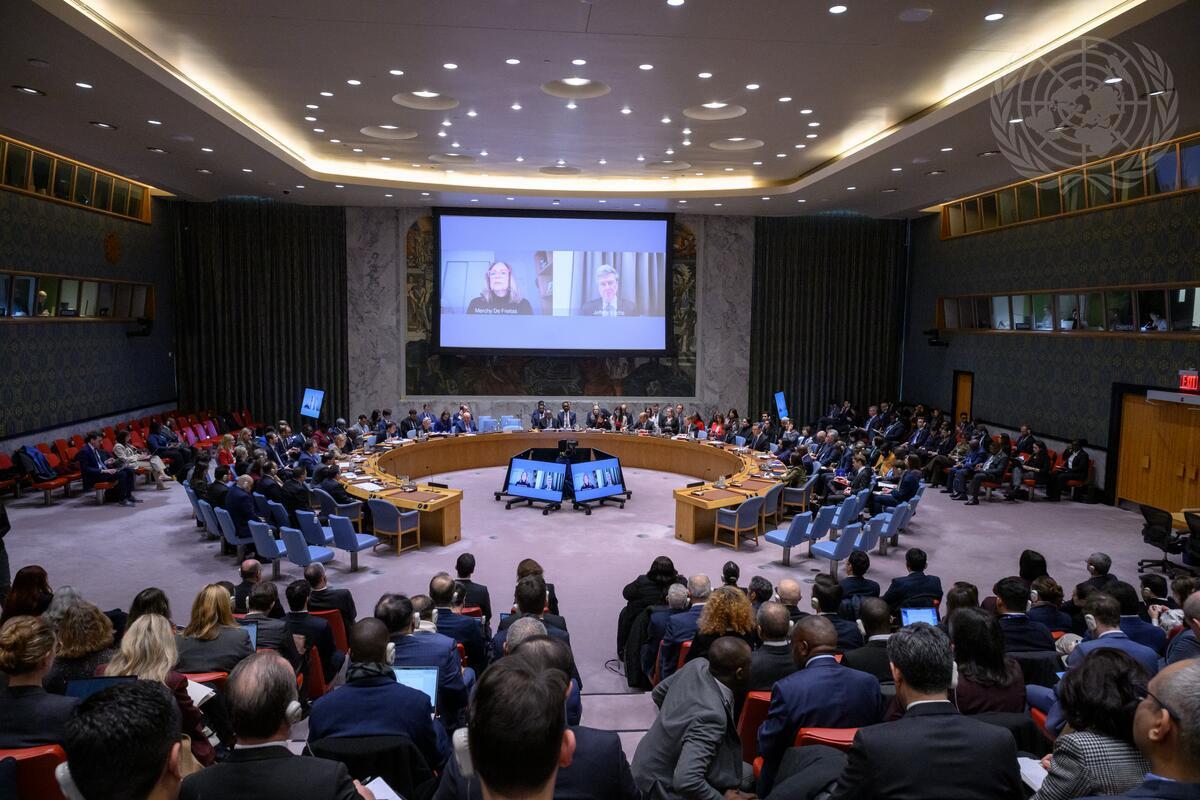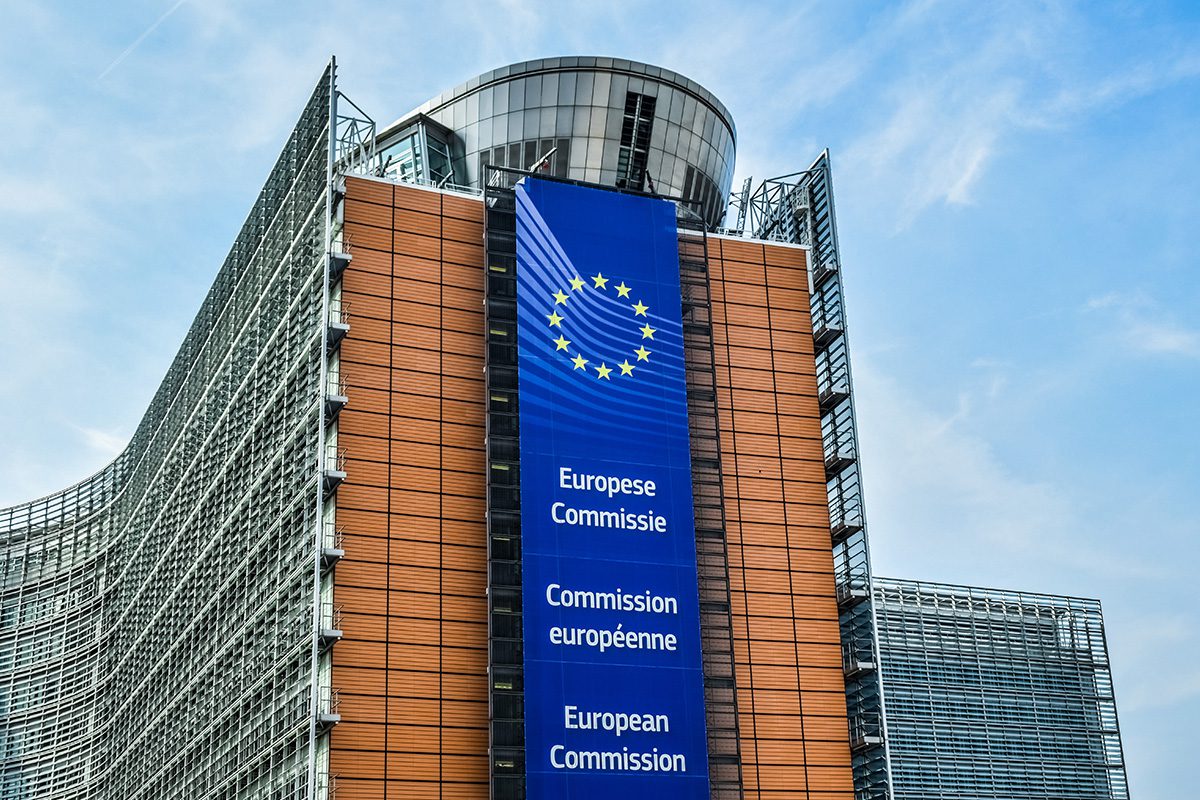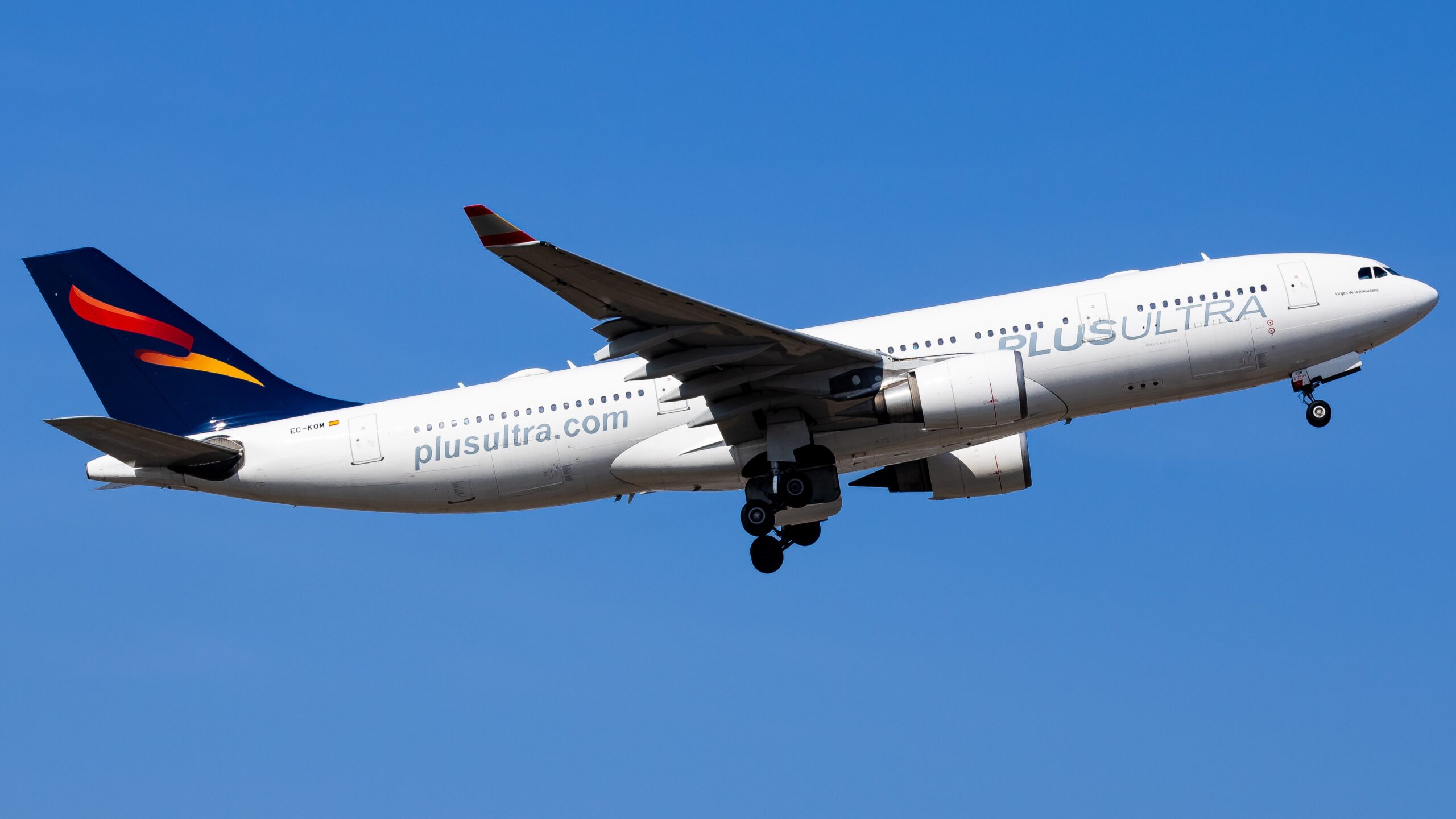The Security Council adopts, by recorded vote, a resolution authorizing the creation of a multinational security support mission (MSS) in Haiti. Photo: UN/Paulo Filgueiras
Guacamaya, October 1, 2025. The Security Council approved the deployment of up to 5,500 personnel in Haiti to combat armed gangs, amid criticism over a lack of funding and doubts about the strategy.
Haiti will receive a new international security mission. The UN Security Council approved the creation of the Gang Suppression Force (GSF), which will replace the weakened Multinational Security Support (MSS) mission. The latter, led by Kenya, never managed to consolidate itself and barely deployed 970 personnel out of the 2,500 planned.
The resolution, presented by the United States and Panama, was adopted with 12 votes in favor and 3 abstentions—China, Russia, and Pakistan. The initial mandate will be for 12 months and will include up to 5,500 police and military personnel, in addition to 50 civilians. Its main task: to support the Haitian National Police in the fight against criminal gangs, which already control 90% of Port-au-Prince and keep the country on edge with murders, kidnappings, and sexual violence.
Prime Minister Ariel Henry had urgently requested this intervention during the UN General Assembly, stating that gang violence represents a threat not only to Haiti but to the entire region. “On behalf of the women and girls raped every day, the displaced families, and the children without education, I urge the international community to act,” he declared.
Beyond the violence, the Haitian crisis has worsened in recent years due to the suspension of the Petrocaribe program, which for over a decade provided Haiti with subsidized oil from Venezuela and resources to fund social and infrastructural projects. The cancellation of the scheme in 2019 left the state without one of its main sources of income, deepened its dependence on international aid, and unleashed a cycle of political and economic instability that created more space for gangs.
However, the new operation faces a central obstacle: funding is not secured. As with the MSS, it will depend on voluntary contributions from member states. The previous failure is an ill omen: of the $600 million budgeted for the MSS in its first year, only $115 million was raised.
The Council also authorized the inclusion of military contingents, which raises concerns among humanitarian organizations. They warn that these contingents are not prepared to deal with such deeply rooted community and criminal dynamics.
The abstentions in the vote reflected these doubts. China criticized the lack of prior studies and the lack of inclusion in the mission’s design, while Russia described the decision as “a dangerous and poorly planned adventure.”
With over 3,000 homicides and 1,500 kidnappings recorded this year alone, in addition to 200,000 displaced people—half of them children—the UN hopes that the new force will manage to reverse the spiral of violence and pave the way for democratic elections in Haiti.

